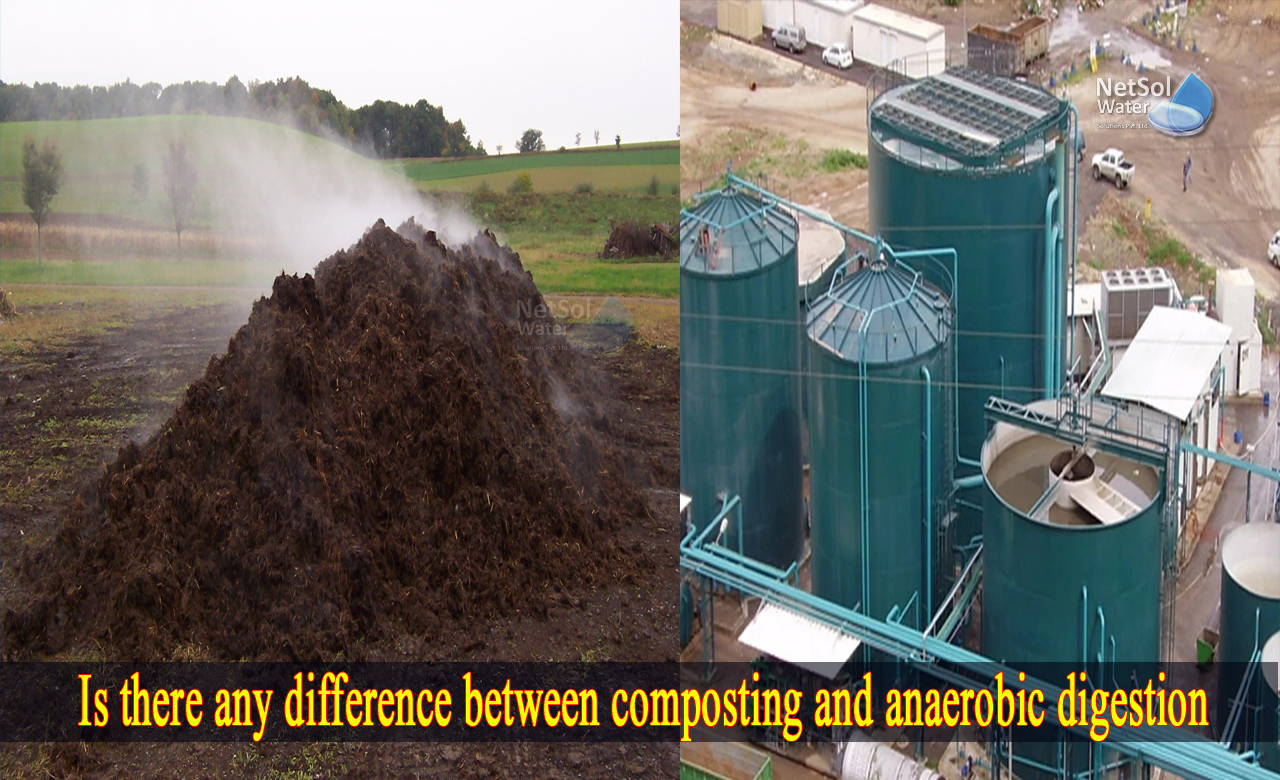Is there any difference between composting and anaerobic digestion?
Composting
Compost is decomposed organic matter. It may be a twig or a banana peel. When you combine a number of these items in a compost pile, they naturally decompose creating a nutrient-rich fertilizer that aids in the growth of plants. Composting may be used for almost anything that grows on the earth. Cucumber ends, apple cores, carrot peels, cantaloupe rinds, avocado pits– any vegetable or fruit waste would suffice. Grains, on the other hand, grow from soil, so you may compost stale bread, cereal and pasta as well.
Anaerobic Digestion
Anaerobic digestion is a process in which microbes break down organic materials in the absence of oxygen, such as animal dung, wastewater biosolids and food waste. Anaerobic digestion for biogas generation occurs in a sealed tank known as a reactor, which is designed and built in a variety of forms and sizes based on the location and feedstock circumstances.
These reactors contain sophisticated microbial communities that break down (or digest) the waste and create biogas and digestate (the solid and liquid end-products of the AD process), which are released from the digester.
Difference between composting and anaerobic Digestion
|
|
Composting |
Anaerobic Digestion |
|
Process |
Decomposition happens in an open-air controlled environment where microorganisms break down organic material. It occurs within the presence of oxygen. |
Organic material is broken down by naturally occurring microorganisms in an enclosed framework. It occurs without the presence of oxygen.
|
|
Emissions |
Emissions are high as commercial-scale compost can release significant amounts of methane into the atmosphere. |
Emissions are low as methane is collected and used to create energy. |
|
Soil Benefits |
Compost waste is healthy. It regenerates poor soil and produces healthy micro-organisms. |
Digested waste is nutrient-dense. No chemicals are released into the soil. |
|
Energy Produced |
No energy is produced. |
A large amount of energy is produced as processed waste creates biogas which can be used to power homes, cars, and more. |
|
Environmental Impact |
It has a high environmental impact as it keeps the waste out of landfills and can prevent erosion and pollution. |
It has an immense environmental impact as it keeps the waste out of the landfills and produces clean energy and prevents erosion and pollution. |
|
Processing Time |
It takes 12 weeks for processing. |
It takes 20-30 days for processing. |
Conclusion
Composting is often an aerobic process. Organisms spontaneously oxidize organic matter under the waste layers, converting nitrogen compounds to nitrate, sulfur to sulfate, and phosphorus to phosphate. As a result of this process, compost transforms from a mound of waste to a nutrient-rich fertilizer. The sole disadvantage is that oxygen produces carbon dioxide. Overall, this is incredibly environmentally beneficial because it is a pure source of recycling. Anaerobic digestion, on the other hand, does not require any oxygen. Instead, the materials are sealed off, with the bacteria feeding on the organic stuff. This procedure is slower than traditional composting, but the end product is significantly more beneficial. Methane, a crucial component of biogas, seeps out of the materials as they anaerobically degraded.
Processed compost, in all of its forms, is an excellent approach to improve local soil quality and minimize erosion. To minimize your composting or AD efforts, you can also buy Netsol’s Food Recycler to reduce your food waste and turn it into a fertilizer for your plants.
Our Food Waste Recycler's have already been deployed in a number of significant locations, where they are assisting in the transition to a more sustainable future. Contact one of our experts to learn more about our waste management strategies including food recyclers!
Netsol Water is Greater Noida-based leading water & wastewater treatment plant manufacturer. We are industry's most demanding company based on client review and work quality. We are known as best commercial RO plant manufacturers, industrial RO plant manufacturer, sewage treatment plant manufacturer, Water Softener Plant Manufacturers and effluent treatment plant manufacturers. Apart from this 24x7 customer support is our USP. Call on +91-9650608473, or write us at enquiry@netsolwater.com for any support, inquiry or product-purchase related query.



